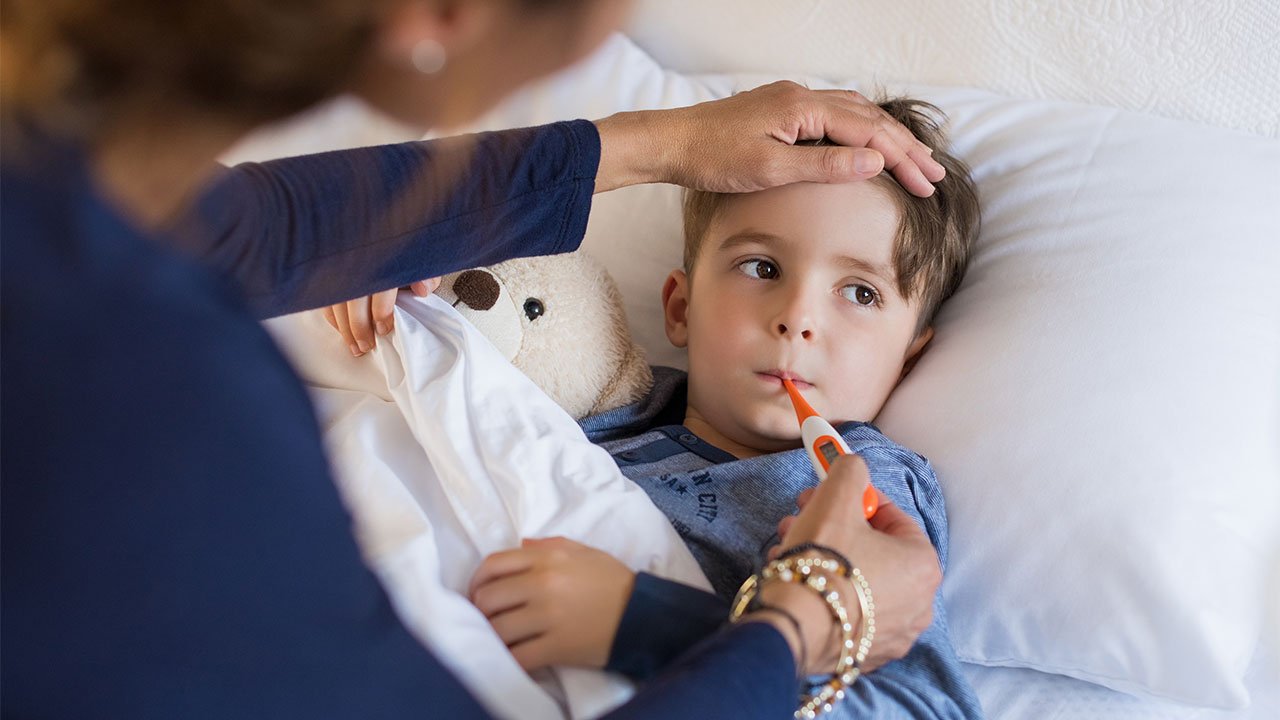
Common Reasons Behind Fever in Children
The kind of fever in children can be varied. It can depend on the level of immunity. It can be a viral fever or fever due to vaccination. Here in this blog, we will discuss the most common ways to be aware of if you observe fever in your child.
What Can Be A Cause Behind Fever?
It's crucial to remember that a fever isn't a sickness in and of itself; it's usually an indication or symptom of something else.
Fevers can be brought on by a variety of factors, including:
Immunizations: Immunizations can cause a low-grade fever in babies and children.
Teething may produce a minor increase in body temperature. Still, if a child's temperature is higher than 100°F (37.8°C), teething is unlikely to be the cause.
Fever is usually caused by an infection or another sickness. The body's inherent defense mechanisms are stimulated by a fever, which aids in the battle against the disease.
Overdressing: Because infants, especially newborns, do not regulate their body temperature, older children may develop fevers if over-bundled or in a hot environment. Fevers in newborns can signify a dangerous infection; thus, even overdressed infants should be evaluated by a doctor if they have one.
What Procedure You Should Follow If Your Child Has Fever?
If your child has red warning signs but has other symptoms like a runny nose or sneezing that point to a superficial viral infection, their temperature should drop soon. You can usually presume they have a simple cold in these situations.
Your youngster may need to be inspected in a 'face-to-face' consultation. In this instance, your child's temperature, pulse, and breathing will almost certainly be taken. Your child's blood pressure may be tested, and they may be checked for lack of fluid in the body (dehydration). It is possible to try a urine sample. An ambulance may be called in rare cases. This does not necessarily imply that your child is seriously ill; rather, it indicates that they should be evaluated at the hospital as soon as possible.
It may be decided that you can care for your child at home; you may be given a phone number to call if you require further assistance, or you may be requested to bring your child in for a check-up the following day.
How To Naturally Lessen A Child's Fever?
- Cover your youngster with a light sheet or blanket and dress them in lightweight clothing. As I said earlier, overdressing and bundling can keep body heat trapped, causing the temperature to rise.
- Ascertain that your child's room is at a comfortable temperature - neither too hot nor too cold.
- While some parents use lukewarm sponge baths to reduce fever, this practice is only effective for a short period. In reality, sponge baths might make children feel uneasy.
- If your child is vomiting and/or has diarrhea, ask your doctor if an electrolyte solution designed specifically for children should be given. These can be found in drugstores and supermarkets. Sports drinks aren't appropriate for younger children, and the extra sweets might aggravate diarrhea. Limit your child's fruit and apple juice intake as well.
What Else Should You Aware Of?
Fevers affect all children, and in the majority of cases, they return to normal within a few days. The way older babies and children act can be more essential than the temperature reading on your thermometer. When a person has a fever, they get irritable.
When To Call For A Doctor?
If your kid experiences shortness of breath or difficulty breathing, is weeping uncontrollably or in extreme pain or has a change in mental condition (for example, appears confused or strangely "out of it"), call your doctor straight once. If you feel your child is dehydrated, you should also contact them. Another clue to see a doctor is the appearance of a new rash combined with a fever.
If you're ever confused about what to do or what a fever means or your child is acting badly in a way that concerns you even if there isn't a fever, consult our doctor.
Remember: Paracetamol and ibuprofen do not cure the underlying cause of the fever; they only relieve the symptoms. They also help to relieve headaches and other aches and pains. If your child is comfortable and not upset by the fever, aches, or pests, you do not need to use these drugs.
Share:
